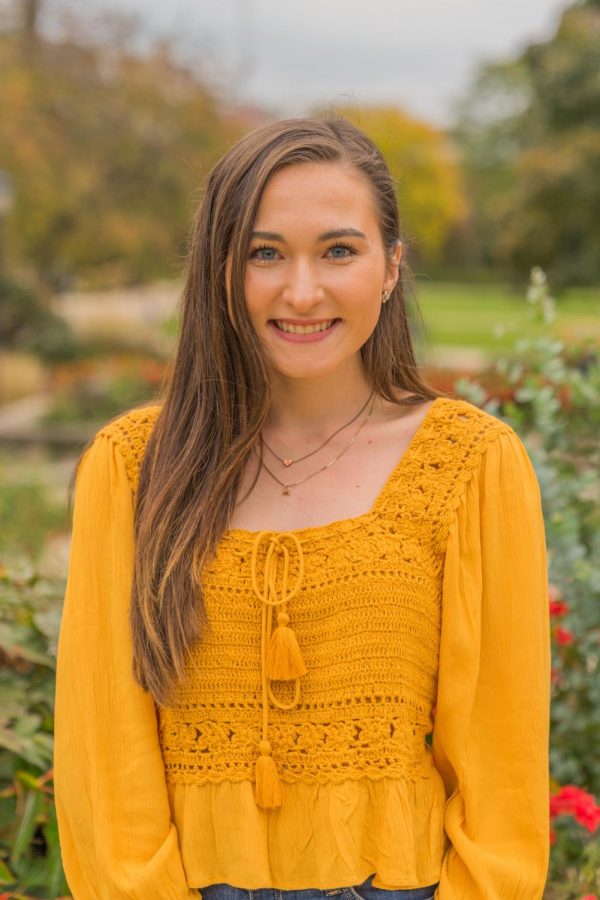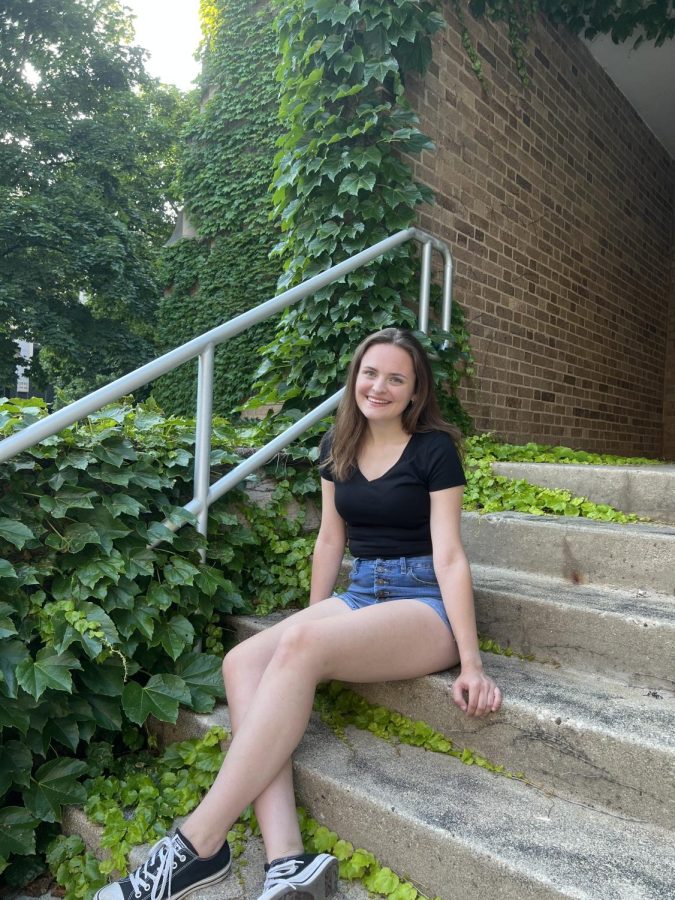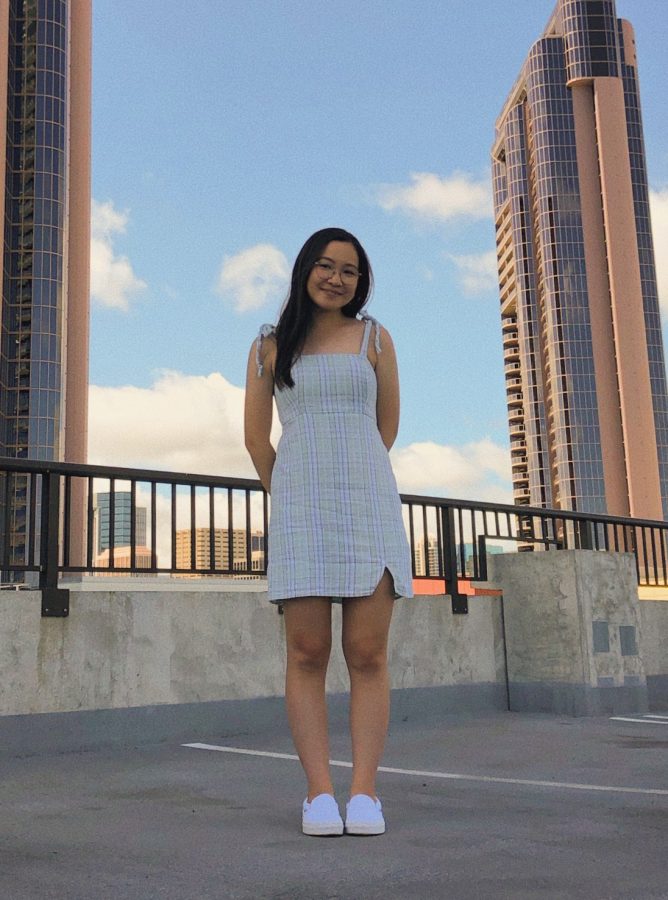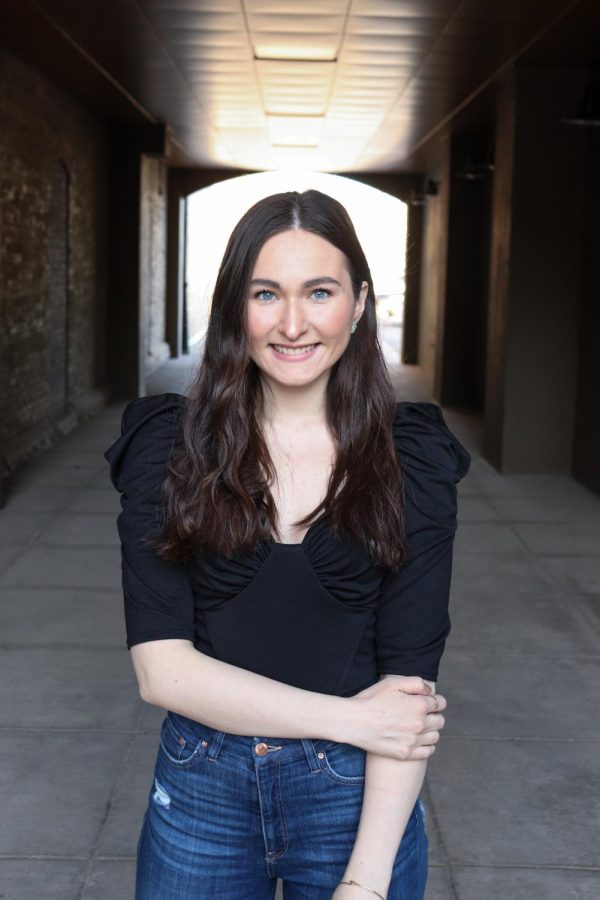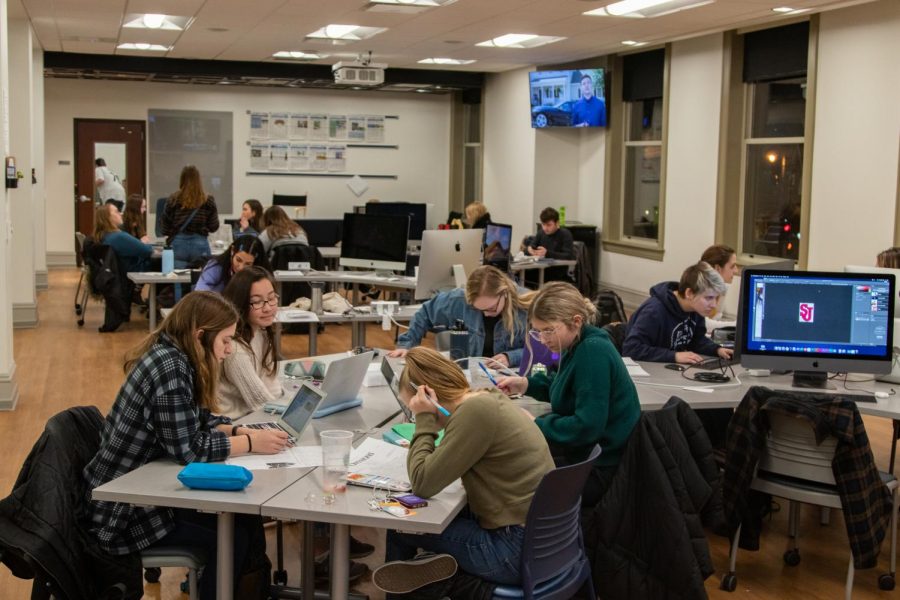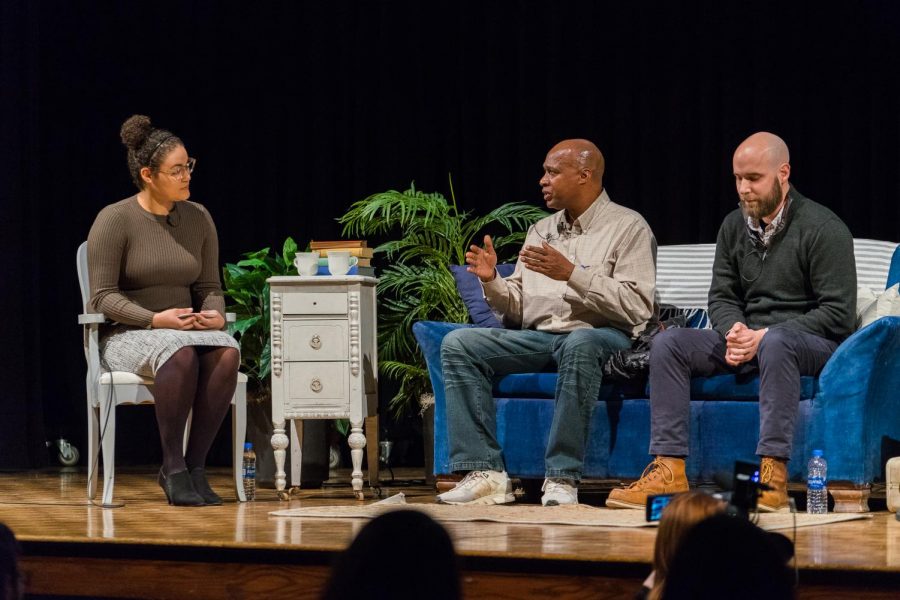There is one highway and 56 minutes between the two places I call home.
When I was first hired as the Managing Editor of the Marquette Journal in the spring semester of last year, I was excited to start planning an issue that would encompass a project our reporters and producers could relate to; something we all know a little bit about.
It was on a ride home from my spring internship when I got the idea.
I took the Gold Line bus from Straz Tower down to the Third Ward three days a week. On the bus and along the route each day, I saw the same buildings and felt the same bustling energy of the city.
I even saw the same person, standing on the same corner playing their guitar, every single day I was on the bus.
I had no idea who this man was or why he was out playing the guitar. His name and his story were a mystery to me. But what I did know was where he would be Tuesdays, Thursdays and Fridays at 11 a.m. I knew the guitar had a broken string.
Each time I rode the bus, I saw this man. Each time I thought, ‘What makes this the place?’
What makes us comfortable in a big space? Where do we find the courage? How did this man find the courage to break out a guitar and play among strangers passing by?
What makes this the place we call home?
It stuck with me, and now it’s the theme of this issue.
We explored the different aspects of what makes the Marquette University and Milwaukee community our home. In this issue, I believe every story, every video and every podcast is personable and expresses that feeling you just can’t describe when you’re on Wisconsin Avenue or in downtown Milwaukee.
There’s a piece called “Finding a Blessing of Place” in this issue. It has advice from a reporter’s grandmother, in which she advises you to find your blessings in the places you call home and encourages you to find a place that is more than just a physical location. It couldn’t be more true.
We looked into the science behind home field advantages and how local athletes are recruited to Marquette. We explored Milwaukee to find grilled cheese sandwiches that take us back to our childhoods.
Our projects series, “Finding Home,” explores the ways in which Marquette plays a role in the Milwaukee community, such as what it means to live out the Jesuit mission and how we can transform the world to a community. We looked into our drinking water and the health of our campus and city in the piece, “Troubled Waters.”
Then, we looked into the homeless population on Marquette’s campus and in Milwaukee, talking with Marquette University Police Department and local shelters about their efforts to help these individuals. In this issue, we talk with Jeff Stingley about his journey from living in Carver Park, his home when he didn’t have one, to now living in a fully equipped apartment.
I often think about the differences and similarities between the places I call home. In my hometown, Sheboygan, Wisconsin, you have to drive everywhere you go. There’s one street marking our downtown with more pizza places than we need.
Between both cities, there’s Lake Michigan, too many seagulls, brick buildings and the friends and family I know and love.
When I drive by the corner or hop on the Gold Line, I make sure to look out for the man with the guitar. He’s sometimes there, and other times he’s not. But I know that this place, Marquette, Milwaukee, that corner and that same electric feeling is what drives us together. It’s what makes our paths cross.
It’s what makes this place home.

